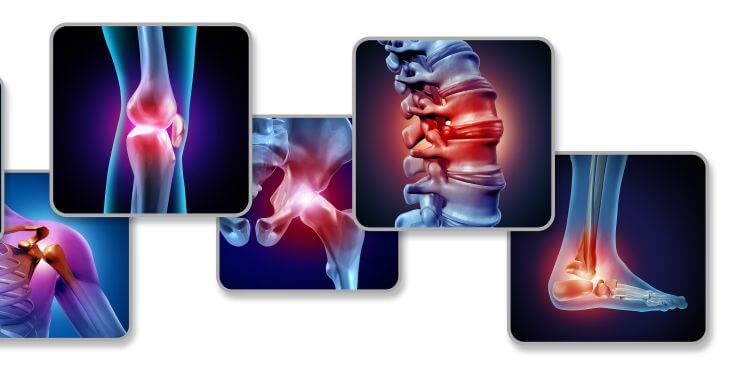What is Interventional Pain Management?

Many people live with acute and chronic pain from injuries, disease and degenerative conditions. While narcotics and certain types of medications can mask the pain, they do not address the source of the pain. One of the options in controlling pain from its source is interventional pain management, which uses a wide variety of treatment modalities to control and eliminate pain. Here is what you need to know about interventional pain management and interventional pain specialists.
Interventional Pain Management vs Traditional Pain Management
The traditional or conventional methods for managing pain control the feeling of pain. Narcotics or opioid medications can change the brain chemistry to help us not feel the pain, but it does not interfere with the source of pain. Even over-the-counter drugs like acetaminophen or ibuprofen only mask the pain in most cases. These are short-term solutions for pain, which can be effective for acute pain, but are not sustainable with chronic or long-term pain conditions.
Interventional pain management differs from traditional pain management in the method of reducing pain. Instead of masking the symptom of pain, specialists in this field strive to break the cycle of pain. Interventional pain management treatment may involve minimally-invasive treatments such as injections or even surgery to address the source of the pain. While interventional pain treatments can be used for all types of pain, it is especially effective for those living with chronic pain who need an alternative to addictive and dangerous traditional pain medications.
Types of Interventional Pain Treatments
There are many different types of treatments used by interventional pain specialists. Many pain management centers that offer interventional pain management use a multi-disciplinary approach. This means many different types of medical professionals and treatments are offered to treat patients. One patient may have a treatment plan that includes seeing various types of medical professionals for their treatments. Some of types of interventional pain procedures include:
- Nerve block injections
- Epidural steroid injections
- RF nerve ablation
- TENS units
- Spinal cord stimulation
- Muscle and joint injections
- PRP and stem cell injections
- Regenerative medicine
- Physical therapy
Interventional pain management treatments focus on the source of the pain. If a treatment can eliminate the source of the pain, this can offer long-term relief for the patient. Not all causes of chronic pain can be eliminated – arthritis is a common cause of chronic pain that does not have a cure. However, there are procedures that can help interrupt the pain cycle and control pain, offering relief for the patient.
Conditions Treated Through Interventional Medicine
Acute pain conditions can be treated through interventional pain management treatments, but it is more common for chronic pain. Acute pain is the pain you feel from an injury or condition while it heals – it is short-term and usually will dissipate over several weeks or a few months. Chronic pain can last for six months or longer – some people have chronic pain conditions that they will live with for the rest of their lives. Chronic pain conditions are ideal for interventional pain management, some of which include:
- Arthritis – osteoarthritis, rheumatoid arthritis, gout
- Sciatica and back pain
- Fibromyalgia
- Neurogenic pain – neuropathy, radiculopathy, nerve damage
- Chronic fatigue syndrome
- CRPS or RSD
- Spine disorders
- Migraines
- Cancer pain
There are hundreds of different conditions that can be treated through interventional pain methods. Top pain management centers that use interventional pain treatments may recommend multiple therapies to address the source of chronic pain to offer relief for the patient.

Interventional Pain Specialists
Doctors who specialize in interventional pain management have a thorough understanding of how pain is experienced within the body. Interventional pain specialists work with medical professionals in many different disciplines to achieve pain relief for their patients. The interventional pain specialist coordinates the treatment plan for the patients and may perform some treatments like guided injections or minimally-invasive surgery. Some of the medical professionals that may work within the interventional pain management field include:
- Physical therapists
- Chiropractors
- Massage therapists
- Acupuncturists
- Psychologists
- Orthopedic surgeons
- Neurosurgeons
Interventional pain specialists can offer customized treatment plans for patients with complex pain disorders. It can require the use of multiple medical professionals working together to uncover the cause of pain and find the right treatment options for relief. What works for one patient may not be effective for another, so each patient may have a different treatment plan for similar conditions.
Interventional pain management is a cohesive strategy to find the source of pain and break the pain cycle. For individuals with chronic back pain, nerve pain, cancer or other chronic pain disorders, seeing an interventional pain specialist can offer long-term relief from their symptoms. To learn more about relief from chronic pain, contact an interventional pain management center near you.
The information provided on this website, including text, graphics, images, and other materials, is intended solely for informational purposes and should not be used as a substitute for professional medical advice, diagnosis, or treatment.



)